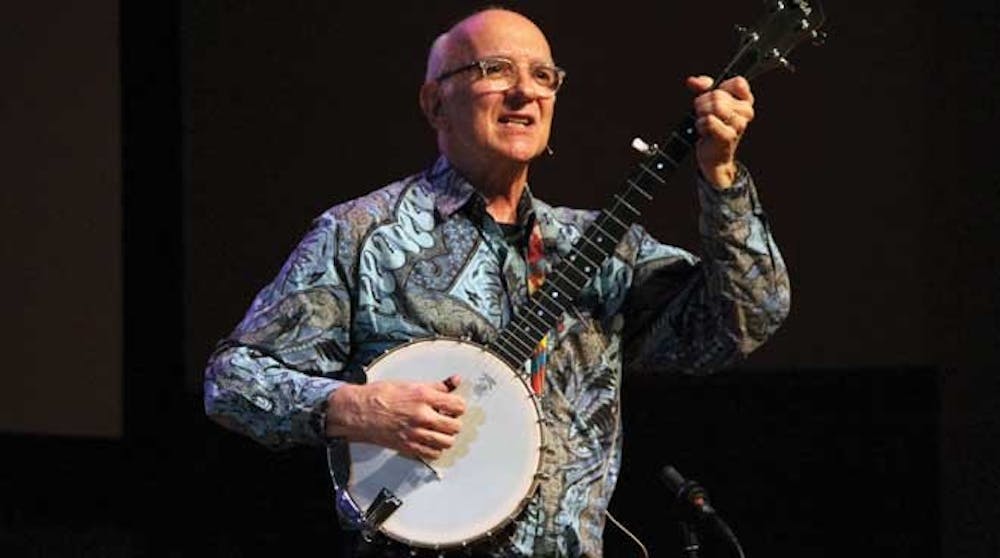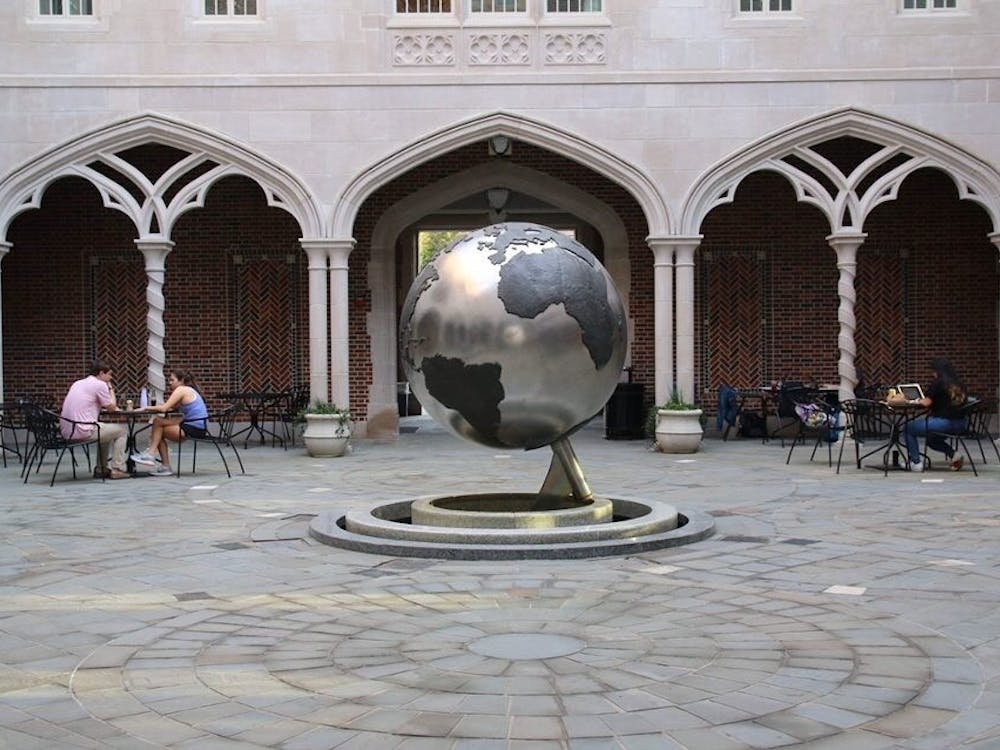Anthony Seeger, nephew of the American folk musician and activist Pete Seeger, spoke about the ways music sparks social change at Camp Concert Hall Feb. 3, just one week after his renowned uncle had died at age 94.
"I'm much less of a musician than a scholar," Seeger said. Nonetheless, he started out the evening playing the folk song "We Shall Not Be Moved" on his banjo and invited the audience to sing with him. "The experience of singing together is part of what this talk's all about," he said.
Seeger's central speaking point was that music brings together people and ideas to organize movements for change. He peppered the lecture with family anecdotes and examples of his uncle Pete's musical activism.
One such story was about Pete's relationship with Martin Luther King Jr., and how he led African Americans in motivational song during the civil rights movement. Seeger showed a video of his uncle singing "We Shall Not Be Moved," tying his ideals to the lecture's big-picture idea.
Seeger also discussed how his uncle inspired environmental change by using music to bring people together for the cause of cleaning up the Hudson River.
"[Pete] had principles, and he stuck with them," Seeger said.
Seeger served as the director of Smithsonian Folkways from 1988 until 2000 and has done significant anthropological fieldwork in Brazil. He is currently a professor of ethnomusicology at UCLA.
Joanna Love, music professor at University of Richmond with a focus on 20th- and 21st-century music, required the students in her Music and Media class to attend Seeger's lecture.
"I hoped [the students] would get specifics about music as a social force," Love said. A number of students in her Popular Music of the '70s and '80s class, which does not have any music majors in it this semester, also attended the lecture, she said.
Seeger also visited music classes at Richmond the day after his lecture, including Make-Listen-Play, taught by Jessie Fillerup, and Soundscapes, taught by Andy McGraw.
Fillerup said that in her class, Seeger had talked about his fieldwork in the Amazon where he had studied the culture of the Suya, whose music had not previously been studied extensively.
Stuart Marcus, a sophomore business major, is taking Soundscapes this semester. Marcus said Seeger talked to his class about soundscapes that had been released on Smithsonian Folkways records. Marcus said he thought one interesting part of Seeger's lecture was his "interpretation of folk music and how it's based off of recognizable tunes, and how that influences people."
Enjoy what you're reading?
Signup for our newsletter
Seeger's talk at Camp Concert Hall was the 2014 Neumann Lecture. The Neumann Lecture Series has been an annual event sponsored by the department of music since 2003.
Contact staff writer Catherine Sinclair at catherine.sinclair@richmond.edu
Support independent student media
You can make a tax-deductible donation by clicking the button below, which takes you to our secure PayPal account. The page is set up to receive contributions in whatever amount you designate. We look forward to using the money we raise to further our mission of providing honest and accurate information to students, faculty, staff, alumni and others in the general public.
Donate Now



